Pass Your CompTIA CySA+ Certification Easy!
CompTIA CySA+ Certification Exams Questions & Answers, Accurate & Verified By IT Experts
Instant Download, Free Fast Updates, 99.6% Pass Rate.

$69.99
Download Free CompTIA CySA+ Practice Test Questions VCE Files
| Exam | Title | Files |
|---|---|---|
Exam CS0-003 |
Title CompTIA CySA+ (CS0-003) |
Files 1 |
CompTIA CySA+ Certification Exam Dumps & Practice Test Questions
Prepare with top-notch CompTIA CySA+ certification practice test questions and answers, vce exam dumps, study guide, video training course from ExamCollection. All CompTIA CySA+ certification exam dumps & practice test questions and answers are uploaded by users who have passed the exam themselves and formatted them into vce file format.
The Ultimate Guide to CompTIA CySA+ Certification: Skills, Strategies, and Career Growth
The CompTIA CySA+ certification is designed to validate a candidate’s ability to identify and respond to cybersecurity threats. It emphasizes practical skills in threat detection, incident response, and vulnerability management. Candidates must be familiar with networking concepts, monitoring tools, and analytical techniques to successfully complete the exam. A strong foundation in these areas ensures that candidates can interpret data accurately and make informed decisions during scenario-based questions.A critical preparation area involves understanding point-to-point protocol exam essentials. Mastery of PPP ensures that remote communications are secure, and that analysts can troubleshoot encapsulation or authentication issues effectively. Network traffic analysis often relies on knowledge of tunneling protocols, and proficiency in PPP concepts directly supports scenario-based problem solving on the CySA+ exam.
Additionally, structured study plans should include network monitoring exercises, hands-on labs, and theoretical review. Regular practice with these concepts allows candidates to reinforce foundational knowledge while improving problem-solving efficiency for the more advanced security topics covered in the exam.
HIPAA Compliance and Regulatory Requirements
Compliance with regulations such as HIPAA is a significant component of cybersecurity, particularly for professionals in healthcare environments. Analysts must understand how to protect sensitive patient data, ensure secure storage, and maintain proper access control. Knowledge of regulatory requirements is also tested in CySA+ scenarios involving policy evaluation and audit compliance.Training through HIPAA training healthcare certification provides insight into safeguarding health information and implementing compliant security practices. Understanding these concepts helps candidates anticipate potential security gaps and identify vulnerabilities in systems that handle protected health information. Scenario-based exam questions may involve recommending policy changes or detecting noncompliance incidents.
Candidates should supplement regulatory study with practice exercises simulating real-world auditing or monitoring processes. This approach strengthens analytical skills, allowing security professionals to combine compliance knowledge with threat detection and incident response expertise.
Automation Techniques for Threat Detection
Modern cybersecurity relies heavily on automation to detect threats efficiently and respond to incidents in real time. Analysts must be capable of using scripting frameworks, monitoring tools, and automated detection systems to manage large-scale networks effectively. Practicing with these tools improves accuracy and reduces human error in identifying suspicious activity.Understanding PowerShell Empire remote control methods demonstrates how analysts can remotely monitor and manage endpoints for threat analysis. These automation frameworks allow candidates to simulate attack responses, gather telemetry, and identify anomalies quickly. Mastery of these techniques ensures preparedness for scenario-based questions on the CySA+ exam.
Supplementing automation knowledge with hands-on practice enables candidates to integrate scripts into SIEM platforms, enhancing detection workflows. Regular exercises help analysts develop repeatable processes for evaluating logs, responding to threats, and maintaining system integrity.
Ethical Hacking Concepts for Analysts
While the CySA+ exam is defensive in focus, understanding offensive tactics strengthens threat anticipation and response strategies. Familiarity with penetration testing techniques allows analysts to identify vulnerabilities before they are exploited by attackers, improving overall security posture. Scenario-based exercises often require candidates to anticipate adversary behavior and implement preventative measures.Studying ethical hacking exam preparation course provides a practical overview of attack vectors and penetration testing methodologies. Knowledge of these techniques helps candidates understand common exploits, simulate threat scenarios, and evaluate system defenses. This perspective is invaluable for interpreting indicators of compromise in exam simulations.
Combining defensive and offensive skills allows candidates to develop comprehensive security strategies. Applying ethical hacking knowledge defensively enhances incident response planning, risk assessment, and the ability to recommend effective mitigations during real-world scenarios.
Disaster Recovery and Backup Strategies
Disaster recovery planning is a core competency for cybersecurity professionals. Analysts must understand various recovery models, including warm standby, pilot light, and multi-site configurations. Selecting the appropriate model depends on organizational needs, budget, and critical service requirements, all of which may be reflected in scenario-based exam questions.Reviewing backup restore disaster recovery models equips candidates with practical strategies for maintaining data integrity and business continuity. The guide explains recovery point objectives (RPO), recovery time objectives (RTO), and model selection criteria, preparing candidates to respond effectively to simulated outage scenarios.
Practical exercises, such as testing failover procedures, evaluating backup integrity, and conducting tabletop simulations, reinforce theoretical knowledge. Candidates gain confidence in selecting and implementing disaster recovery strategies that minimize operational disruption during incidents.
Linux Skills for Security Professionals
Linux systems are widely used in enterprise and cloud environments, making expertise in Linux administration essential for CySA+ candidates. Analysts must understand command-line tools, process management, permissions, and system hardening to detect and mitigate threats effectively.The linux system administrator certification course provides hands-on guidance for mastering Linux fundamentals and security best practices. Training covers configuration, monitoring, and automation techniques that help analysts detect anomalies and secure endpoints. Mastery of these concepts ensures readiness for Linux-based scenario questions on the exam.
Continued practice with Linux servers, scripting exercises, and log monitoring strengthens problem-solving skills. Candidates develop the ability to secure systems, analyze suspicious activity, and respond to security events accurately, aligning with CySA+ objectives.
Cloud and OpenStack Security Concepts
Knowledge of cloud platforms and virtualization environments is increasingly relevant for cybersecurity analysts. Understanding how to secure workloads, monitor virtual systems, and implement best practices in cloud architectures is critical for both exam and real-world applications. Candidates should focus on hybrid and public cloud deployments to anticipate potential vulnerabilities, openstack rhcsa free course provides hands-on experience with cloud infrastructure, virtualization security, and configuration management. Learning these concepts equips candidates to handle scenario-based questions involving cloud security, resource monitoring, and incident detection.
Practical exercises in OpenStack environments improve the ability to deploy, monitor, and secure cloud workloads. Integrating cloud knowledge with Linux and automation skills ensures a holistic approach to threat detection and incident response.
Enterprise Application Security Awareness
Enterprise applications often have complex architectures, requiring specialized security knowledge. Analysts must understand access controls, monitoring methods, and platform-specific vulnerabilities to protect sensitive systems effectively. Scenario-based exam questions may test the ability to detect unauthorized activity and recommend mitigation strategies.Studying the hp server application certification path helps candidates learn best practices for securing enterprise content management systems. The training focuses on configuration, monitoring, and system alerts, providing real-world insights into application security.
Combining enterprise application awareness with broader cybersecurity skills enhances exam readiness. Candidates can identify risks, implement effective controls, and respond to security incidents confidently, ensuring success on both practical and theoretical CySA+ questions.
Exploring NFV Certification Opportunities
Network Function Virtualization (NFV) is rapidly transforming the way organizations deploy network services. Cybersecurity analysts must understand virtualized networking environments to detect threats and secure digital infrastructure. NFV allows for greater flexibility, faster deployment of services, and easier monitoring of network traffic.The brocade free nfv certification provides a practical pathway for professionals to learn NFV deployment, configuration, and monitoring techniques. This certification teaches students how to manage virtual network functions, which is increasingly relevant for CySA+ candidates dealing with cloud and virtualized environments. Understanding NFV concepts ensures analysts can evaluate security risks in modern networks.
Hands-on practice with NFV labs reinforces theoretical knowledge. Analysts gain the ability to implement, monitor, and troubleshoot virtual networks, which directly aligns with real-world threat detection scenarios. Preparing with these exercises strengthens comprehension and readiness for advanced exam questions.
Updates on RHEL7 Security Exams
Linux systems remain central to enterprise networks, and staying current with Red Hat updates is critical for cybersecurity professionals. RHEL7 administrators must understand system security, patch management, and configuration changes to maintain secure operations.The red hat rhel7 exam updates explain new objectives and updated security modules. By studying these updates, candidates can anticipate changes in exam content and ensure their preparation aligns with current best practices. Knowledge of updated security protocols and patching strategies is essential for detecting vulnerabilities and securing systems.
Supplementary practice exercises, including system hardening, process monitoring, and access control, help reinforce learning. Candidates can apply these techniques in lab environments, which improves problem-solving skills and readiness for both scenario-based questions and practical network defense tasks.
SQL Injection Vulnerability Analysis
Web applications remain a common target for attackers, and SQL injection is one of the most prevalent vulnerabilities. Analysts must understand how to detect, exploit in a controlled environment, and mitigate SQL injection attacks to protect data and maintain system integrity.A detailed way, union select sql injection guide, provides hands-on examples for identifying SQL injection flaws and implementing remediation strategies. Candidates learn to safely test input validation, monitor for anomalies, and understand query manipulation techniques. These skills are particularly relevant to CySA+ exam scenarios involving web application security.
Applying knowledge through practice labs improves threat detection capabilities. Analysts develop the ability to review logs, identify suspicious database behavior, and apply security controls to prevent unauthorized data access.
Azure Virtual Desktop Certification Insights
Virtual desktop infrastructure (VDI) is increasingly adopted for secure remote work environments. Analysts must understand VDI deployment, configuration, and security to monitor and protect user sessions effectively. Knowledge of VDI is also tested in cybersecurity certifications that focus on cloud security.The az 140 virtual desktop certification provides guidance on deploying and securing Azure Virtual Desktop environments. Candidates learn about identity management, resource allocation, and security policies, which are directly applicable to exam scenarios involving cloud infrastructure monitoring.
Practical exercises, including setting up test environments and configuring access controls, help candidates internalize theoretical knowledge. By practicing these configurations, analysts gain confidence in managing virtual desktops securely and detecting potential threats.
Microsoft Certification Comparison Guide
Choosing the right Microsoft certification can influence career growth and skill development. Candidates need to understand differences between foundational certifications to select the most suitable path for their expertise and organizational requirements.The comparing az 900 ms 900 guide compares the two certifications, providing insight into exam objectives, cloud fundamentals, and core business technology knowledge. This helps candidates decide which certification aligns with their cybersecurity preparation and career goals.
Practical application of these concepts through labs and simulations allows candidates to reinforce learning. By comparing certification paths, analysts can strategically plan their training while strengthening understanding of cloud and enterprise technology security.
SC-100 Security Operations Strategy
Enterprise security operations require advanced knowledge of threat intelligence, identity protection, and monitoring solutions. Preparing for certification exams that cover these topics enhances analytical and defensive skills. Candidates must understand multi-layered protection strategies and compliance frameworks.Furthermore, sc 100 exam strategy guide details exam scope, challenges, and recommended strategies for mastering security operations. Candidates gain insight into identity management, incident response planning, and proactive threat detection. This guide supports scenario-based learning aligned with CySA+ objectives.
Combining strategy with hands-on exercises allows analysts to practice monitoring, threat correlation, and mitigation techniques. Simulating real-world incidents ensures that skills are retained and applied effectively during both exams and workplace scenarios.
Azure AI-900 Fundamentals Overview
Artificial intelligence (AI) integration is increasingly essential for cybersecurity and cloud operations. Analysts must understand AI fundamentals to apply automated analytics, threat detection, and predictive modeling effectively. Foundational knowledge in AI is also tested in certification exams.The azure ai 900 fundamentals course introduces concepts of AI, machine learning, and cognitive services in Microsoft Azure. Candidates learn to implement AI solutions for monitoring, automating threat analysis, and improving decision-making. This knowledge supports scenario-based questions in the CySA+ exam involving automated analysis or anomaly detection.
Practicing AI implementation in lab environments reinforces theoretical understanding. Analysts can simulate AI-driven monitoring, interpret results, and make informed recommendations, enhancing exam readiness and practical cybersecurity skills.
Generative AI Integration with AWS Bedrock
Generative AI is transforming cybersecurity, providing new methods for automated threat analysis and intelligence synthesis. Analysts must understand AI platforms, API integration, and model deployment to utilize these tools effectively in security operations.The amazon bedrock ai integration guide explores using AWS Bedrock for generative AI workflows. Candidates learn to integrate AI models into monitoring pipelines, automate threat detection, and enhance analytical insights. Understanding these applications aligns with scenario-based challenges in the CySA+ exam.
Hands-on experiments with AI workflows and cloud integration solidify practical knowledge. Analysts can test AI-assisted monitoring, interpret generated insights, and apply automated remediation, improving both exam readiness and real-world cybersecurity operations.
Impact of AWS Local Zones on Cloud Adoption
Cloud computing has transformed the way organizations deliver services, allowing faster deployment and flexible resource scaling. Enterprises increasingly rely on cloud infrastructure to support operations, improve productivity, and enhance security monitoring. Understanding cloud deployment strategies is critical for analysts who manage hybrid or public cloud environments, aws local zones manila impact explores how AWS Local Zones in Manila are reshaping technology adoption in the Philippines. This provides a practical perspective on localized cloud infrastructure, latency optimization, and region-specific compliance requirements. Analysts can use these insights to monitor cloud environments effectively and plan security strategies for distributed workloads.
Practicing cloud deployment simulations and analyzing real-world case studies helps candidates understand network traffic patterns, optimize resource allocation, and detect potential threats. This strengthens readiness for cloud-focused questions on certification exams and real-world operations.
Monitoring VPC Traffic with Flow Logs
Monitoring network traffic is essential for detecting anomalies and identifying potential threats. Analysts need visibility into communication between resources in cloud environments, as unmonitored traffic can conceal security risks. Virtual private clouds (VPCs) in AWS provide critical networking infrastructure for cloud applications.The aws vpc flow logs guide provides practical instruction on decoding and analyzing VPC traffic using flow logs. These logs allow analysts to monitor network activity, detect suspicious behavior, and investigate incidents efficiently. Understanding flow log interpretation is crucial for scenario-based questions and real-world threat detection.
Hands-on practice with VPC traffic analysis helps candidates recognize patterns, identify misconfigurations, and implement proactive security measures. Using logs to detect unauthorized access or abnormal traffic strengthens analytical skills and supports effective cloud monitoring strategies.
Real-Time Cloud Vigilance Techniques
Ensuring continuous visibility and alerting in cloud environments is a challenge that requires innovative monitoring solutions. Analysts must design workflows that provide real-time alerts and actionable insights for security operations. Cloud vigilance combines monitoring tools, automation, and communication platforms to streamline detection.The aws slack real-time vigilance resource explains how to integrate AWS monitoring services with Slack for proactive alerting. This integration enables analysts to receive instant notifications, track anomalies, and respond to incidents efficiently. Knowledge of such integrations helps candidates design automated monitoring workflows for certification exams and workplace scenarios.
Regular exercises in setting up alerting pipelines, testing notification workflows, and analyzing incident reports improve practical understanding. Analysts develop the ability to maintain situational awareness, ensure system integrity, and respond quickly to security incidents.
Email Security with Suppression Lists
Email remains a primary vector for cyberattacks, making email security a critical focus area for analysts. Understanding how to prevent spam, phishing, and unauthorized data exposure is essential for maintaining organizational security posture.The email suppression lists integrity article explains how suppression lists influence email integrity and protect recipients. By understanding their role in filtering and compliance, analysts can better monitor email systems and reduce risk exposure. Incorporating this knowledge supports both certification exam preparation and practical threat mitigation strategies.
Practical exercises, such as reviewing email logs, configuring filtering rules, and testing suppression list policies, reinforce analytical capabilities. These tasks help candidates implement policies effectively, improving security outcomes and exam readiness.
VMware Certification and Cloud Security
Virtualization technologies are foundational in enterprise IT environments, providing scalable and isolated workloads. Analysts must understand hypervisor functionality, virtual networking, and security configuration to maintain secure systems, vmware certification exams provide structured training and guidance for mastering VMware environments. These exams cover deployment, monitoring, and security best practices, enabling candidates to secure virtualized infrastructure efficiently. Knowledge of VMware concepts is particularly valuable for scenarios involving virtual machine monitoring and resource management.
Hands-on practice with VMware labs strengthens candidate skills in configuration, access control, and troubleshooting. These exercises reinforce theoretical knowledge and support readiness for both certification exams and real-world virtualization security challenges.
WatchGuard Security Solutions
Network security appliances, like firewalls and intrusion prevention systems, remain crucial for enterprise defense. Analysts must understand device configuration, monitoring, and logging to detect threats and maintain secure networks.The watchguard certification exams provide training on configuring firewalls, setting policies, and monitoring network traffic. Candidates learn to manage alerts, implement secure configurations, and respond to detected anomalies. This practical knowledge is directly applicable to scenario-based questions on cybersecurity exams.
Hands-on exercises with firewall appliances help analysts develop troubleshooting skills, interpret logs, and enforce policies. Regular practice ensures readiness for both exams and operational security tasks in enterprise environments.
University IT Security Programs
Formal training through academic institutions provides a structured foundation for cybersecurity skills. Analysts gain theoretical knowledge, hands-on labs, and exposure to security frameworks, preparing them for certification exams and real-world responsibilities, wgu university certification exams offer practical guidance on IT security topics, including threat analysis, compliance, and system monitoring. These exams help students integrate academic concepts with applied security practices, reinforcing analytical and defensive skills.
Engaging in simulations, group labs, and scenario exercises enhances comprehension. Candidates can apply knowledge to both certification scenarios and operational cybersecurity challenges, improving problem-solving and readiness.
Workplace Compensation and IT Security Integration
Security analysts in enterprise environments often need to integrate operational knowledge with organizational compliance and workforce management. Understanding how workplace policies influence IT security practices ensures comprehensive risk management.The worldatwork certification exams provide guidance on aligning organizational policies with security procedures. Candidates learn to integrate workforce compliance, monitoring, and IT operations to reduce security risks. Knowledge gained from these exams enhances preparation for scenario-based questions requiring policy evaluation.
Practical exercises involving policy implementation, access control, and monitoring enforcement improve analytical thinking. Analysts gain experience in balancing operational priorities with security needs, strengthening overall competency.
Zend Platform Security Essentials
Web and enterprise applications require secure development, deployment, and monitoring. Analysts must understand application configuration, logging, and access management to maintain secure platforms and detect potential threats.The zend certification exams offer training on application security, performance monitoring, and configuration best practices. Candidates gain insights into securing PHP-based platforms and monitoring runtime behavior, supporting scenario-based questions in certification exams.
Hands-on labs, including application deployment, log analysis, and threat simulation, reinforce knowledge. Analysts learn to implement security controls, detect anomalies, and respond efficiently, enhancing both exam performance and workplace readiness.
Zscaler Cloud Security Insights
Cloud security solutions like Zscaler provide protection for distributed users and cloud workloads. Analysts must understand secure access service edge (SASE) concepts, monitoring tools, and policy management to maintain compliance and threat visibility, scaler certification exams provide guidance on configuring cloud security controls, monitoring network traffic, and protecting cloud applications. Candidates learn to manage access policies and detect unusual activity in cloud environments, which aligns with real-world operational requirements.
Practicing cloud security configuration, monitoring, and alert response helps analysts strengthen their skills. Simulated exercises improve threat detection, system analysis, and response strategies, preparing candidates for both exams and enterprise cloud operations.
CAMS Certification for Security Analysts
Certified Anti-Money Laundering Specialist (CAMS) certification is vital for analysts working in financial and cybersecurity domains. Understanding fraud detection, compliance regulations, and reporting requirements enhances threat detection skills in both financial and broader IT environments.The cams anti money laundering training provides practical guidance on identifying suspicious transactions, risk assessment, and regulatory compliance. Candidates learn to integrate these principles into monitoring workflows, enhancing their analytical and investigative capabilities. This knowledge supports scenario-based questions on detecting financial threats.
Hands-on exercises involving case studies, transaction monitoring, and anomaly detection strengthen comprehension. Analysts develop real-world skills in compliance monitoring, risk evaluation, and reporting, preparing for both certification exams and workplace responsibilities.
Advanced Networking with AWS Specialty
Cloud networks are the backbone of modern IT infrastructures, and understanding advanced networking concepts is critical for analysts. Knowledge of routing, load balancing, and security configurations ensures secure and efficient network operations,aws advanced networking specialty training covers hybrid cloud networking, monitoring traffic flows, and securing connections. Candidates gain insight into advanced routing protocols, VPNs, and cloud security strategies. This skill set aligns with CySA+ objectives for monitoring and protecting cloud-based networks.
Practical labs, such as configuring network appliances, simulating traffic flows, and monitoring for anomalies, improve hands-on expertise. Analysts can identify misconfigurations, detect suspicious activity, and enhance network security in real-world cloud deployments.
AWS AI Practitioner Fundamentals
Artificial intelligence (AI) and machine learning (ML) integration into cybersecurity provides automated threat detection and analysis capabilities. Analysts must understand AI workflows, data preprocessing, and predictive modeling to leverage AI effectively.
The aws ai practitioner training teaches implementation of AI solutions for monitoring, anomaly detection, and automation of security processes. Candidates learn to deploy AI models in cloud environments to analyze logs and detect unusual patterns. This knowledge supports CySA+ scenario-based challenges requiring AI-assisted analytics.
Hands-on exercises involving AI model deployment, interpreting predictions, and integrating automated alerts strengthen practical skills. Analysts improve efficiency in threat detection, gaining experience with modern AI-powered security operations.
Cloud Fundamentals with AWS Certification
Understanding cloud fundamentals is essential for analysts monitoring cloud infrastructure. Knowledge of core services, security principles, and resource management ensures effective protection of workloads in public, private, and hybrid clouds.The aws cloud practitioner training provides foundational knowledge on cloud architecture, IAM, storage, and security best practices. Candidates learn to manage cloud resources, implement security controls, and monitor activity logs for potential threats. This foundation is critical for CySA+ candidates preparing for cloud-based scenario questions.
Practical labs, such as setting up cloud environments, configuring IAM policies, and simulating access violations, enhance hands-on expertise. Analysts can evaluate security risks, detect anomalies, and apply mitigation strategies in real-world cloud scenarios.
Data Engineering with AWS
Data plays a central role in threat detection, analytics, and reporting. Analysts must understand data pipelines, storage solutions, and ETL processes to efficiently collect and analyze security-relevant information.The aws data engineer associate training teaches secure data handling, processing workflows, and integration of data sources. Candidates gain insight into monitoring data flows, detecting anomalies, and ensuring integrity for analytics purposes. This knowledge is relevant for CySA+ exam questions involving data collection and threat intelligence analysis.
Hands-on exercises with data ingestion, transformation, and storage pipelines reinforce theoretical knowledge. Analysts develop practical experience in securing data processes, analyzing logs, and producing actionable intelligence for incident response.
Developer Associate Skills for Security Monitoring
Understanding application development and deployment is essential for monitoring and securing software environments. Analysts need knowledge of coding practices, API security, and logging to detect vulnerabilities.The aws developer associate training focuses on deploying secure applications, monitoring runtime behavior, and integrating security controls into development workflows. Candidates learn to detect application anomalies, validate API security, and implement automated monitoring solutions. This skill set directly supports CySA+ exam scenarios involving application security.
Practical exercises, including deploying secure applications, analyzing logs, and testing endpoint security, improve analytical capabilities. Analysts gain experience in detecting and mitigating application-based threats in real-world environments.
Machine Learning Specialty for Threat Analysis
Machine learning enhances threat detection and predictive analytics in cybersecurity. Analysts must understand model training, data validation, and automated decision-making to leverage machine learning effectively.The aws machine learning specialty training teaches deployment of ML models for security analysis, anomaly detection, and proactive incident response. Candidates learn to integrate ML solutions into monitoring pipelines to identify subtle patterns and potential threats. This advanced knowledge strengthens CySA+ scenario-based readiness.
Hands-on practice with training datasets, model evaluation, and automated alert workflows improves operational skills. Analysts can leverage machine learning to detect anomalies faster, prioritize threats, and respond efficiently to incidents in cloud or hybrid environments.
Machine Learning Engineer Certification Insights
Machine learning is transforming cybersecurity by providing advanced analytics, predictive modeling, and automated threat detection. Analysts must understand model training, evaluation, and deployment to enhance security monitoring capabilities. Mastery of machine learning allows candidates to anticipate threats and respond proactively.
Moreover, aws machine learning engineer associate training provides in-depth knowledge on building, deploying, and monitoring machine learning models for security analysis. Candidates learn to leverage cloud-based ML frameworks to detect anomalies, predict potential threats, and integrate models into security workflows. This training aligns with scenario-based CySA+ exam questions that require data-driven threat detection.
Hands-on labs, including training datasets, model tuning, and anomaly detection workflows, reinforce theoretical knowledge. Analysts gain practical skills in implementing machine learning solutions, optimizing performance, and applying predictive analytics to real-world cybersecurity challenges.
AWS Security Specialty Training
Cloud security is a critical focus for analysts managing distributed workloads. Understanding identity and access management, encryption, and threat monitoring is essential for maintaining secure cloud environments. Analysts must evaluate risks and implement preventive measures in real-time.The aws security specialty course provides guidance on advanced cloud security practices, including secure architecture design, incident response, and compliance management. Candidates learn to implement monitoring, enforce policies, and secure workloads across multiple AWS services. This practical knowledge supports both CySA+ exam scenarios and operational cloud security tasks.
Practical exercises with AWS tools, threat simulations, and incident response planning enhance hands-on expertise. Analysts can apply learned strategies to detect misconfigurations, mitigate threats, and ensure compliance across enterprise cloud infrastructures.
VMware 212-77 Certification Preparation
Virtualization is a core technology in enterprise IT environments, requiring analysts to monitor and secure virtual workloads. Understanding hypervisors, virtual networking, and resource allocation is critical for effective threat detection.
The vmware 212-77 exam provides a structured approach to mastering VMware administration and security. Candidates gain practical experience in monitoring virtual machines, configuring networking, and implementing security best practices. This knowledge supports scenario-based CySA+ questions that involve monitoring and defending virtualized environments.
Hands-on labs with virtual machines, network simulations, and log analysis help analysts reinforce concepts. Practicing deployment and troubleshooting ensures candidates can apply virtualization security principles in real-world settings.
VMware 212-81v3 Advanced Security
Advanced VMware management involves securing virtual networks, enforcing access controls, and monitoring system activity. Analysts must understand best practices for maintaining integrity and preventing unauthorized access in virtualized environments.The vmware 212-81v3 guide explains advanced security topics, including monitoring logs, detecting anomalies, and implementing encryption protocols. Candidates learn to manage virtual workloads effectively, supporting both exam preparation and operational security responsibilities.
Practical exercises with virtual labs, logging tools, and security configurations reinforce learning. Analysts gain hands-on experience in securing virtual infrastructures, applying monitoring policies, and responding to potential threats.
VMware 212-82 Certification Essentials
Effective management of virtualized environments requires knowledge of resource allocation, security monitoring, and compliance practices. Analysts must identify risks and implement controls across multiple virtual machines, vmware 212-82 exam provides insight into monitoring virtual environments, managing alerts, and applying security best practices. Candidates gain practical experience in evaluating virtual workloads, detecting vulnerabilities, and performing incident response.
Hands-on practice with VMware labs enhances troubleshooting skills, log interpretation, and resource optimization. Analysts can implement security policies, monitor anomalies, and ensure compliance across virtual infrastructure.
VMware 212-89 Administration Guide
Administrators must secure virtualized systems while ensuring operational efficiency. Analysts should understand virtual network segmentation, logging, and backup strategies to maintain system integrity.The vmware 212-89 guide covers monitoring, backup strategies, and alert management for VMware environments. Candidates learn to secure virtual machines, manage events, and detect potential misconfigurations. This training supports CySA+ exam scenarios that involve virtualization security.
Practical exercises in virtual labs, alert configuration, and network segmentation reinforce theoretical knowledge. Analysts gain hands-on expertise in detecting anomalies, mitigating risks, and ensuring consistent operational security.
Cisco 312-38 Certification Overview
Network infrastructure security is essential for maintaining enterprise cybersecurity. Analysts must understand routing, switching, firewall configurations, and monitoring protocols to ensure secure communication.The cisco 312-38 exam provides guidance on network configuration, traffic monitoring, and threat mitigation strategies. Candidates learn to implement access controls, monitor network behavior, and respond to suspicious activity. This training supports scenario-based CySA+ exam preparation.
Practical exercises with routers, switches, and network logs help analysts strengthen configuration skills and threat detection. Hands-on practice ensures they can manage network security in operational environments.
Cisco 312-39 Network Security Practice
Effective network security requires monitoring, threat detection, and incident response. Analysts must identify vulnerabilities and enforce policies across connected devices, cisco 312-39 guide provides structured training on monitoring, firewall rules, and security best practices. Candidates learn to implement security controls, analyze traffic, and respond to incidents in real time.
Hands-on labs with packet capture analysis, firewall testing, and intrusion detection enhance practical expertise. Analysts develop skills to detect anomalies, mitigate threats, and maintain network security compliance.
Cisco 312-39v2 Advanced Training
Advanced network security training covers traffic analysis, access control, and vulnerability management. Analysts must interpret logs and monitor network activity for signs of compromise.The cisco 312-39v2 certification teaches advanced monitoring techniques, threat investigation, and incident response. Candidates gain insight into configuring firewalls, analyzing logs, and managing network devices securely.
Practical exercises, including intrusion detection testing and traffic simulation, reinforce knowledge. Analysts can detect suspicious activity, implement controls, and respond effectively to emerging threats.
Cisco 312-40 Security Operations
Cybersecurity operations require real-time monitoring, incident response, and threat mitigation. Analysts must understand device logs, traffic patterns, and alert systems to maintain secure networks.The cisco 312-40 guide provides training on network monitoring, alert management, and security operations best practices. Candidates learn to detect anomalies, configure alerts, and respond to incidents efficiently.
Hands-on labs, including simulated attacks, log analysis, and alert testing, strengthen skills. Analysts gain experience in operational security, improving both exam performance and real-world threat detection capabilities.
Cisco 312-49 Certification Preparation
Advanced network security involves continuous monitoring, access management, and incident response planning. Analysts must maintain visibility across all network components to detect potential threats.The cisco 312-49 exam provides guidance on monitoring strategies, secure configurations, and risk mitigation. Candidates learn to implement alerts, review logs, and apply security policies to ensure network integrity.
Practical exercises with simulated environments, log monitoring, and alert configuration enhance skills. Analysts develop real-world expertise in threat detection, risk management, and maintaining enterprise security standards.
TOGAF 9 Foundation Advanced Concepts
Enterprise architecture is critical for aligning IT infrastructure with organizational goals. Analysts must understand architectural frameworks, modeling techniques, and governance practices to support enterprise security and operational efficiency.The togaf 9 foundation part 2 tutorial offers an in-depth look at advanced TOGAF concepts, including architecture development methods, capability modeling, and governance frameworks. Candidates learn to apply these principles in scenario-based exercises, which enhances understanding of enterprise IT environments and supports CySA+ exam readiness.
Practical exercises involving architecture modeling, documentation, and governance simulation strengthen analytical skills. Analysts gain experience in designing secure and efficient IT architectures, improving both exam performance and real-world operational efficiency.
UiPath Advanced RPA Developer Training
Robotic Process Automation (RPA) streamlines repetitive workflows, reducing human error and improving security monitoring. Analysts benefit from understanding RPA workflows to identify automation risks and secure processes.The uipath advanced rpa developer tutorial teaches candidates to design, develop, and monitor advanced RPA solutions. This training emphasizes secure workflow development, error handling, and audit logging, which are essential for scenario-based questions in certification exams.
Hands-on labs, including creating automated workflows, logging events, and error simulations, reinforce skills. Analysts develop the ability to detect anomalies in automated processes, optimize efficiency, and maintain security compliance in enterprise environments.
Unity Game Platform Security Essentials
Game and simulation platforms are increasingly used in enterprise training and cybersecurity simulations. Analysts need to understand application security, event logging, and system monitoring within these platforms.The unity gpp 256 tutorial guides candidates through securing Unity applications, monitoring user interactions, and ensuring data integrity. By applying these techniques, analysts can prevent unauthorized access, detect anomalies, and secure sensitive simulation environments.
Practical exercises involving debugging, logging, and access control strengthen understanding. Analysts gain hands-on experience in applying security measures, identifying vulnerabilities, and ensuring platform integrity.
VMCE v12 Cybersecurity Certification Training
Virtualization remains a foundational technology for enterprise security. Analysts must monitor virtual machines, enforce access controls, and implement threat detection mechanisms.The vmce v12 tutorial covers the configuration and security monitoring of virtualized environments. Candidates learn to detect network anomalies, configure alerts, and implement virtual firewall rules. This knowledge aligns with CySA+ exam scenarios focused on virtualization security.
Hands-on labs, including creating virtual networks, simulating attacks, and analyzing logs, provide practical experience. Analysts can apply these skills to secure enterprise virtual environments effectively, reinforcing exam preparation.
VMware VCA6-DCV Fundamentals
Virtualization administration requires knowledge of resource allocation, hypervisor configuration, and monitoring best practices. Analysts need this expertise to detect misconfigurations and secure workloads. 1v0-601 vca6-dcv vmware tutorial teaches candidates how to manage virtual infrastructure, optimize performance, and implement security policies. Understanding resource distribution, alert configuration, and access management strengthens practical monitoring skills for certification exams.
Hands-on exercises, including virtual machine deployment, network configuration, and log analysis, enhance learning. Analysts gain confidence in managing complex virtualized environments, detecting anomalies, and responding to incidents.
VMware VCA-DBT Advanced Training
Cloud and virtualization technologies require secure deployment, monitoring, and management. Analysts must understand workload orchestration, alert systems, and compliance verification to maintain operational integrity. 1v0-701 vmware vca-dbt tutorial provides guidance on advanced virtualization and cloud deployment best practices. Candidates learn to configure monitoring, enforce policies, and respond to detected threats in multi-tenant environments. This knowledge supports both CySA+ scenario-based questions and real-world operational readiness.
Practical exercises, including orchestrating workloads, monitoring system activity, and applying security controls, reinforce expertise. Analysts gain hands-on experience in detecting misconfigurations, mitigating risks, and ensuring secure cloud and virtualized operations.
Conclusion
The journey through the CompTIA CySA+ certification landscape demonstrates the depth and breadth of knowledge required for a competent cybersecurity analyst. The focus has been on bridging theoretical understanding with practical application, ensuring candidates not only pass the exam but also develop real-world capabilities essential for modern IT security operations. CySA+ emphasizes a holistic skill set, including threat detection, incident response, vulnerability management, and cloud security monitoring, all of which are crucial in today’s increasingly complex technological environment.
A key takeaway is the importance of hands-on practice alongside theoretical study. Each section highlighted the integration of labs, simulations, and practice scenarios, from virtualization monitoring to cloud traffic analysis, and from network security exercises to machine learning-driven threat detection. These practical exercises are critical for reinforcing learning, building analytical thinking, and developing proficiency in tools and platforms frequently encountered in enterprise environments. The use of real-world case studies, scenario-based questions, and step-by-step exercises ensures that candidates understand not only how to perform tasks but also why specific approaches and methodologies are applied. This dual emphasis prepares analysts to respond effectively under pressure, both during the exam and in professional settings.
Another significant theme emphasized the growing role of cloud technologies, virtualization, and AI in cybersecurity. With the proliferation of cloud deployments, analysts must understand not only the technical workings of platforms like AWS, Azure, and VMware but also the security considerations unique to distributed and multi-tenant architectures. The article underscored the need for visibility into cloud traffic, log monitoring, and automated alerting, as well as integrating machine learning for predictive threat analysis. Understanding these emerging technologies is no longer optional; it is an essential component of modern threat detection and incident response strategies, directly impacting an analyst’s ability to secure complex networks and cloud environments effectively.
Certification preparation is not limited to mastering technical content but also involves strategic planning, time management, and leveraging available resources effectively. Also highlighted how comprehensive study guides, practice test questions, and exam dumps can be valuable tools when used ethically and in conjunction with hands-on exercises. These resources provide candidates with insight into exam structure, typical question types, and real-world application scenarios. However, the article also stresses that true competence comes from understanding concepts deeply rather than memorizing answers. Developing critical thinking skills, analyzing system behavior, and applying knowledge to unpredictable scenarios is the hallmark of a successful CySA+ professional.
ExamCollection provides the complete prep materials in vce files format which include CompTIA CySA+ certification exam dumps, practice test questions and answers, video training course and study guide which help the exam candidates to pass the exams quickly. Fast updates to CompTIA CySA+ certification exam dumps, practice test questions and accurate answers vce verified by industry experts are taken from the latest pool of questions.
CompTIA CompTIA CySA+ Video Courses
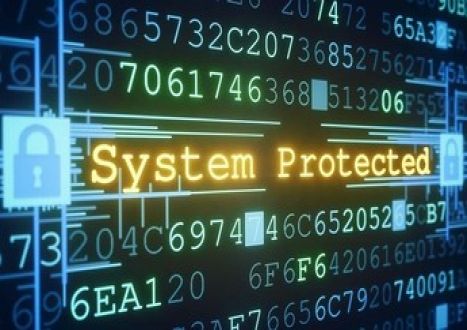





Top CompTIA Certification Exams
Site Search:




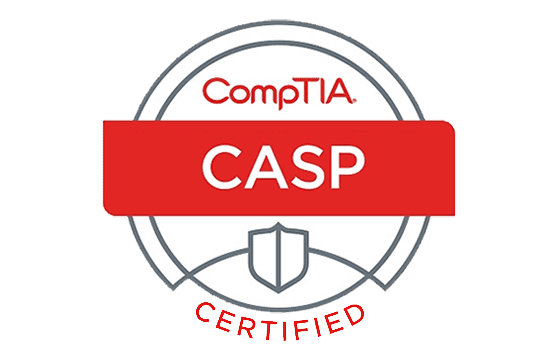
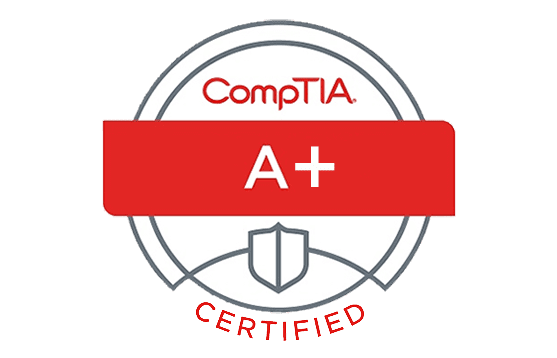
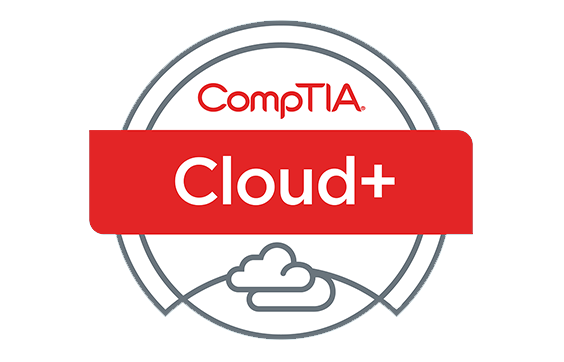
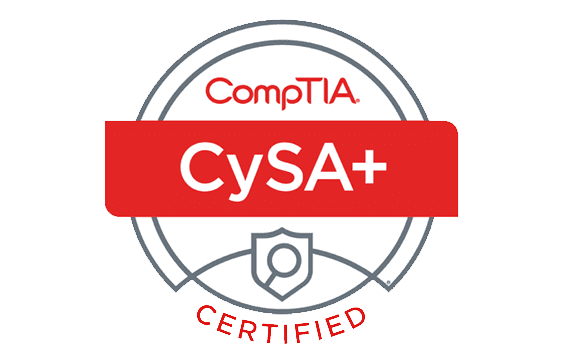
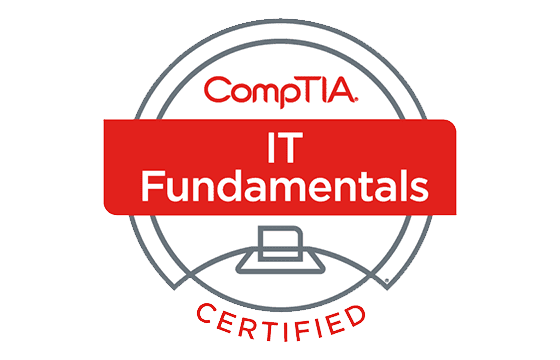
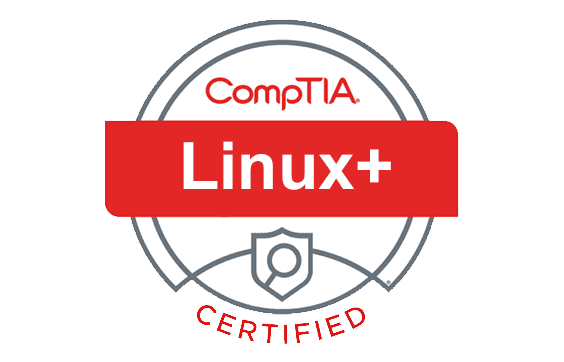
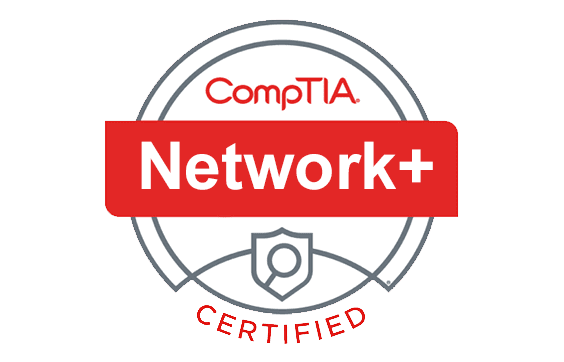
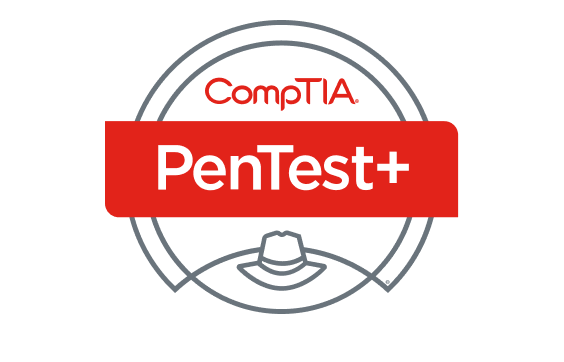
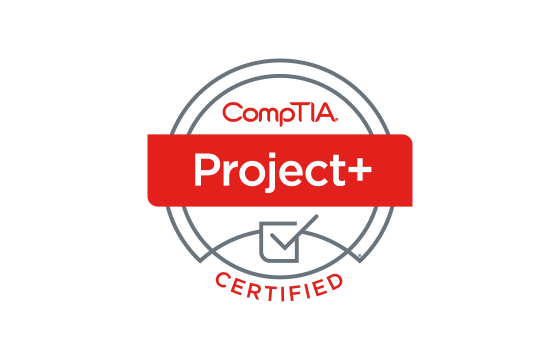
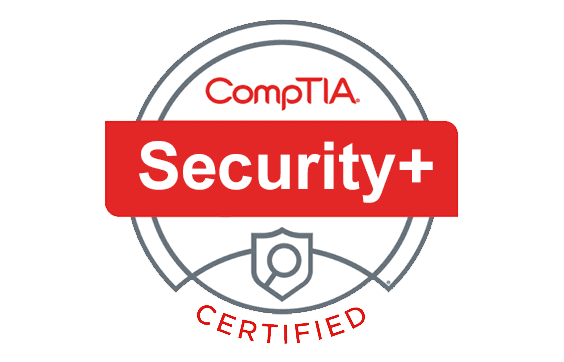





The free VCE files that are offered by ExamCollection are high-quality as always. That is why I passed my exam on the very first try. I recommended this site to my colleagues, and now they are using it as well giving me all the praise for the advice I made.
I use the materials from this website for the second time, because my previous experience with ExamCollection was very successful and I passed the exam at the first attempt. I hope that this time will be the same, but I would also appreciate some luck if somebody wishes me.
The files are with the real exam questions indeed! I was shocked when I saw the same questions and the options of answers that are in the VCE files. The most important is that these files are available for free. I borrowed the study guide from a friend of mine to learn the topics and mastered my skills with the help of these Q&As. Passed on the very first try. Thanks, ExamCollection!